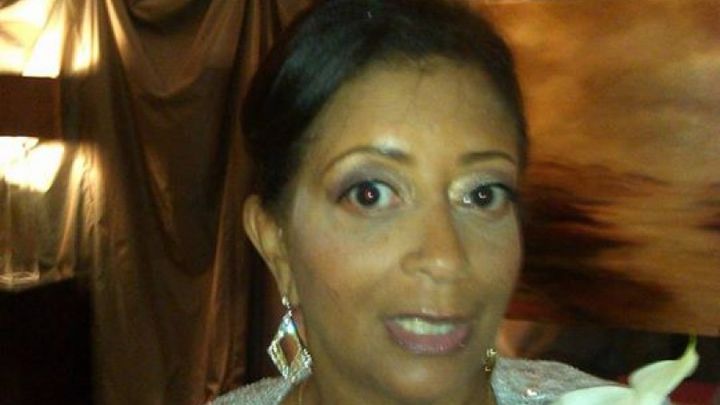
Rally4Roz - Roz's Kidney Transplant
Donation protected
While a licensed x-ray technician, my sister Roz decided to be a guinea pig for the testing of a new machine. Never did she expect they would find Polycystic Kidney disease upon her kidneys.
What is Polycystic Kidney Disease? Polycystic kidney disease (also called PKD) causes numerous cysts to grow in the kidneys. These cysts are filled with fluid. If too many cysts grow or if they get too big, the kidneys can become damaged. PKD cysts can slowly replace much of the kidneys, reducing kidney function and leading to kidney failure.
Roz is currently on dialysis 3 times a week,while she waits for a donor. She still manages to work full time,making sure people's dream vacations come true and spends time with the joy of her life, her grandson Lucas. Roz also finds the strength to serve faithfully on the Welcome Team at her church every other Sunday. I watch her push herself to maintain as much a normal lifestyle as possible, all the while having to go to dialysis.
Roz must have one kidney removed before she can have her transplant. This surgery will have to be done in the fall. Unfortunately, health insurance does not fully cover the cost for the surgery.
We are currenlty fundraising to help Roz with the cost associated that insurance will not cover. No donation is to small or too BIG :-)
Roz is currently on the National Kidney Transplant list-however we are actively looking for a LIVING DONOR for her. Living donation takes place when a living person donates an organ (or part of an organ) for transplantation to another person. The living donor can be a family member, such as a parent, child, brother or sister (living related donation).
Living donation can also come from someone who is emotionally related to the recipient, such as a good friend, spouse or an in-law (living unrelated donation). Thanks to improved medications, a genetic link between the donor and recipient is no longer required to ensure a successful transplant.
In some cases, living donation may even be from a stranger, which is called anonymous or non-directed donation.
For more information on Living Donation please contact:
Natalie McLellan at [email redacted].
All inquiries to Natalie are STRICTLY CONFIDENTIAL !!! No names or information is shared with us unless you desire such. They will only tell us that people are requesting to be tested.
EXPENSES FOR THE DONOR ARE COVERED.
Please consider donating to help my sister to fund the expenses for her transplant. Your graciousness would definitely be appreciated more than you could ever know.
I thank you in advance.
Toni Patterson
What is Polycystic Kidney Disease? Polycystic kidney disease (also called PKD) causes numerous cysts to grow in the kidneys. These cysts are filled with fluid. If too many cysts grow or if they get too big, the kidneys can become damaged. PKD cysts can slowly replace much of the kidneys, reducing kidney function and leading to kidney failure.
Roz is currently on dialysis 3 times a week,while she waits for a donor. She still manages to work full time,making sure people's dream vacations come true and spends time with the joy of her life, her grandson Lucas. Roz also finds the strength to serve faithfully on the Welcome Team at her church every other Sunday. I watch her push herself to maintain as much a normal lifestyle as possible, all the while having to go to dialysis.
Roz must have one kidney removed before she can have her transplant. This surgery will have to be done in the fall. Unfortunately, health insurance does not fully cover the cost for the surgery.
We are currenlty fundraising to help Roz with the cost associated that insurance will not cover. No donation is to small or too BIG :-)
Roz is currently on the National Kidney Transplant list-however we are actively looking for a LIVING DONOR for her. Living donation takes place when a living person donates an organ (or part of an organ) for transplantation to another person. The living donor can be a family member, such as a parent, child, brother or sister (living related donation).
Living donation can also come from someone who is emotionally related to the recipient, such as a good friend, spouse or an in-law (living unrelated donation). Thanks to improved medications, a genetic link between the donor and recipient is no longer required to ensure a successful transplant.
In some cases, living donation may even be from a stranger, which is called anonymous or non-directed donation.
For more information on Living Donation please contact:
Natalie McLellan at [email redacted].
All inquiries to Natalie are STRICTLY CONFIDENTIAL !!! No names or information is shared with us unless you desire such. They will only tell us that people are requesting to be tested.
EXPENSES FOR THE DONOR ARE COVERED.
Please consider donating to help my sister to fund the expenses for her transplant. Your graciousness would definitely be appreciated more than you could ever know.
I thank you in advance.
Toni Patterson
Organizer and beneficiary
Toni Leach Patterson
Organizer
Matthews, NC
Roz Riley
Beneficiary